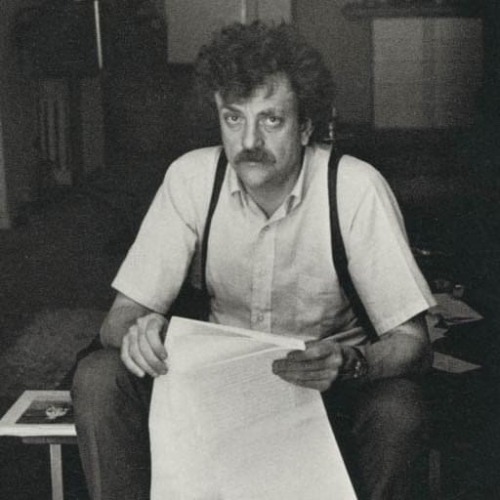Do You Have Any Advice For Younger / Newere Writers? You Write So Much And You're Very Skilled! I'm Inspired
do you have any advice for younger / newere writers? you write so much and you're very skilled! i'm inspired by you
Aww thanks! Maybe I write a bit too much ahaha.
Well, idrk what you’re searching advice for so I will give general tips.
Before writing:
Do your research. Not only about the subject, but if there’s people out there who have also thought about the idea and have a tag for it.
Set a goal. I suck at this myself, but having a not-rigid word count goal (with timer if it makes you feel more motivated) really get your gears going. There’s a few pages that make it more entertaining too!
Warm up Drabbles. Nothing better than writing something adjacent to what you really want to write just to warm up and get a bit more creative so you hit the zone quicker.
This is optional but if you have time, make a page for your characters and setting. Like a reference page so you don’t go write someone is 160 cm when you have already said they’re 178.
While writing:
Limit your editing. It’s tempting to correct in the moment, (more if you’re unsure about grammar) but sometimes while fixing something you lose your pace and in the worst cases, forget where you were going. Editing can come later.
If you’re gonna have CW at the top, highlight the key words so it’s easier to go through it later.
After writing:
Don’t delete your scrapped ideas. You don’t know when you might wanna use that idea, so even if it’s never used having an scrap document for them is great.
If you didn’t like the end product altogether, it’s fine to put it aside for a while and come back to it later to see if it really should be abandoned in the scrap document or tossed away. Sometimes a little bit of time makes the errors look less severe and fixable and the good things to pop out more. Let it brew!
Pass your text through a beta reader and a program that allows you to correct your grammar and spot typos.
To gain attention:
Quick note here, don’t get discouraged if you don’t receive millions of likes in your first chapter. Sometimes it takes two projects or more to get traction. Keep going regardless of numbers! They don’t dictate how good you are!
Interact with others. Slide into inboxes, participate in ask and tag games, reblog other people’s fics, make collabs. most people are cool with being tagged in games even if you’re not mutuales with them so don’t be shy! Although, Don’t just talk to people to use their following.
Take part in writing/drawing challenges. July has the @whumpmasinjuly event with a prompt list, as there is events like the month of writers, nanowrimo, whumptober, etc.
Keep writing and explore other ideas besides your comfort zone. This started as a whump writing blog, but evolved into positivity, some art and writing (even occasional thoughts and poetry) The variety lends itself to grow your range of public and to expand your creative library.
Promote yourself. Shamelessly self reblog your favorite fics, or just reblog it for the timezone difference. You’re proud of what you wrote and I’m proud of you for writing it, but sometimes tumblr sucks and I won’t see it immediately. So don’t be afraid of reblogging your own things!
Make your own events and ask games. DTIYS, requests, giveaways when you hit a follower milestone. If you have the time for it and have fun doing it, go for it!
This is my personal opinion, but having visuals for your story such as mood boards, picrews, illustrations, etc. Makes me more interested in a story. It’s also an easy way to present your characters to your readers.
Have fun. It’s noticeable when an author is having fun writing it and when it feels like a chore. I’m not telling you to absolutely love it, just to trust in yourself and what you’re doing a bit. If it doesn’t feel right, revision it. If you can’t find it, hand it to someone and ask for their opinion. Not having fun doing what you love hurts like a bitch, and it just rubs salt in the wound when it flops or you can’t stand reading through it. So, explore ideas, maybe go back to your comfort to come back to the new a bit less scared. Or maybe find new inspirations so you can go rush and add new stuff and weed out what doesn’t seem right.
Overall that’s it I think. @ashintheairlikesnow has a great tag for new writers in her blog so I advice to check that out and ask more people. @thewritershandbook is also a good resource place!
Good luck anon! I’ll be cheering on you.
More Posts from Lune-versatile and Others
The “What-If” Writing Method
Sometimes when I’m writing, brain just....stops. No more ideas. No more words. Nothing. Sometimes, the solution to this problem is to simply take a break from writing and let your brain relax. Other times, though, you really are just at a block for ideas. This happened to me significantly more often than I would like, but thankfully, I’ve developed a solution that works well for me, and it’s uncreativly titled the “what-if” method.
Get a piece of paper and pen. Or a Google doc, or whatever works best for you.
Start brainstorming questions about your story, or possible “what-if” scenarios. (Ex: What if my character got framed for a crime they didn’t commit?)
Write down every single idea that comes to your head. Even if it doesn’t really work for your story. Even ones that deviate from your existing plot. Even the stupid ones. Especially the stupidest ones.
Cross out the ideas you don’t like, circle the ones that you do like.
Start coming up with answers for the questions you circled, or expand in the by coming up with more questions. (Ex: They would have to prove they didn’t commit the crime to regain their freedom. How do they prove it?)
Repeat until you have a full idea that you can work on/write with.
That’s it. That’s the whole strategy. I’ve used this a million times, and it’s gotten me out of a million cases of writers block, so hopefully it can work well for you too! Happy writing!
things people do in real world dialogue:
• laugh at their own jokes
• don’t finish/say complete sentences
• interrupt a line of thought with a sudden new one
• say ‘uh’ between words when unsure
• accidentally blend multiple words together, and may start the sentence over again
• repeat filler words such as ‘like’ ‘literally’ ‘really’ ‘anyways’ and ‘i think’
• begin and/or end sentences with phrases such as ‘eh’ and ‘you know’, and may make those phrases into question form to get another’s input
• repeat words/phrases when in an excited state
• words fizzle out upon realizing no one is listening
• repeat themselves when others don’t understand what they’re saying, as well as to get their point across
• reply nonverbally such as hand gestures, facial expressions, random noises, movement, and even silence
WEBSITES FOR WRITERS {masterpost}
E.A. Deverell - FREE worksheets (characters, world building, narrator, etc.) and paid courses;
Hiveword - Helps to research any topic to write about (has other resources, too);
BetaBooks - Share your draft with your beta reader (can be more than one), and see where they stopped reading, their comments, etc.;
Charlotte Dillon - Research links;
Writing realistic injuries - The title is pretty self-explanatory: while writing about an injury, take a look at this useful website;
One Stop for Writers - You guys... this website has literally everything we need: a) Description thesaurus collection, b) Character builder, c) Story maps, d) Scene maps & timelines, e) World building surveys, f) Worksheets, f) Tutorials, and much more! Although it has a paid plan ($90/year | $50/6 months | $9/month), you can still get a 2-week FREE trial;
One Stop for Writers Roadmap - It has many tips for you, divided into three different topics: a) How to plan a story, b) How to write a story, c) How to revise a story. The best thing about this? It's FREE!
Story Structure Database - The Story Structure Database is an archive of books and movies, recording all their major plot points;
National Centre for Writing - FREE worksheets and writing courses. Has also paid courses;
Penguin Random House - Has some writing contests and great opportunities;
Crime Reads - Get inspired before writing a crime scene;
The Creative Academy for Writers - "Writers helping writers along every step of the path to publication." It's FREE and has ZOOM writing rooms;
Reedsy - "A trusted place to learn how to successfully publish your book" It has many tips, and tools (generators), contests, prompts lists, etc. FREE;
QueryTracker - Find agents for your books (personally, I've never used this before, but I thought I should feature it here);
Pacemaker - Track your goals (example: Write 50K words - then, everytime you write, you track the number of the words, and it will make a graphic for you with your progress). It's FREE but has a paid plan;
Save the Cat! - The blog of the most known storytelling method. You can find posts, sheets, a software (student discount - 70%), and other things;
I hope this is helpful for you!
(Also, check my blog if you want to!)

TO WRITE CHAPTERS AND DRAFTS: “THE PAGES”
a highly customizable, simplistic but fancy googledoc for writing chapters and drafts, perfected for writers. a dark-mode version to please the eyes. to download / copy, go to file and click “make copy” to copy it to your gdrive.
features:
overview / introductory page with a section for ideas
dark-mode
table of contents for chapters
sub-headers to accompany main headers
bookmark system as navigation
aesthetically constructed layout to write your chapters in (2 columns)
please like / reblog if you’re using or interested in using it!
if you’re interested in more, check out the all-in-one gdoc “the book” here. dm me for requests.




Read that marimos can get sick from receiving too much light, but this man of sunshine is only making them love sick.
we always say that writing improves with practice, which is true & good to remind people of, but i think we fail to emphasize that literally every part of your writing will get better with time and effort. sure, your prose will become clearer and more sophisticated, but it’s so much more than that.
you’ll become so much faster, for one thing. if it takes you two weeks to complete a 3k chapter when you start out, you’ll eventually reach a point when you can crank that out in a matter of days. maybe right now your story ideas are like a dripping faucet–slow, random, and occasional. well, the longer you let that faucet run, the more your ideas will start to flow, until suddenly you’re finding inspiration in everything. the length and complexity of your stories will grow too. you might start writing stories in the 2-10k range, but you’ll eventually find that you’re writing 20-30k stories without even really intending to.
of course your style will improve. of course your imagery will become richer. of course your syntax will start to flow better. but there are so many other aspects of the writing process, and literally every single one of them will start getting better too.
In 2006 a high school English teacher asked students to write a famous author and ask for advice. Kurt Vonnegut was the only one to respond - and his response is magnificent: “Dear Xavier High School, and Ms. Lockwood, and Messrs Perin, McFeely, Batten, Maurer and Congiusta:
I thank you for your friendly letters. You sure know how to cheer up a really old geezer (84) in his sunset years. I don’t make public appearances any more because I now resemble nothing so much as an iguana.
What I had to say to you, moreover, would not take long, to wit: Practice any art, music, singing, dancing, acting, drawing, painting, sculpting, poetry, fiction, essays, reportage, no matter how well or badly, not to get money and fame, but to experience becoming, to find out what’s inside you, to make your soul grow.
Seriously! I mean starting right now, do art and do it for the rest of your lives. Draw a funny or nice picture of Ms. Lockwood, and give it to her. Dance home after school, and sing in the shower and on and on. Make a face in your mashed potatoes. Pretend you’re Count Dracula.
Here’s an assignment for tonight, and I hope Ms. Lockwood will flunk you if you don’t do it: Write a six line poem, about anything, but rhymed. No fair tennis without a net. Make it as good as you possibly can. But don’t tell anybody what you’re doing. Don’t show it or recite it to anybody, not even your girlfriend or parents or whatever, or Ms. Lockwood. OK?
Tear it up into teeny-weeny pieces, and discard them into widely separated trash recepticals. You will find that you have already been gloriously rewarded for your poem. You have experienced becoming, learned a lot more about what’s inside you, and you have made your soul grow.
God bless you all!
Kurt Vonnegut

Nimbus Publishing and Vagrant Press Goose Lane Editions Breakwater Books Ltd. The Acorn Press Bouton d'or Acadie Canada Council for the Arts | Conseil des arts du Canada


Your narrator and each of your characters should sound different from one another (unless your story is in the first person and one of the characters is actually telling the story!). Remember that no two people speak in exactly the same way, so if all your characters sound identical to your narrator, it will pull the reader out of the story.

Every person has distinct vocal habits or “go-to’s,” words or phrases they use often, and giving your characters their own vocal “go-to’s” can help lend them some realism and make it easier to tell them apart from one another. Here’s a little hint: we use these “go-to’s” even more often when we’re distracted or not fully paying attention to the conversation and what we’re saying.

People sometimes stumble over their words. Let your characters stutter, or repeat themselves, or forget what they were about to say, or even ramble sometimes, especially if they are feeling flustered or overwhelmed in the scene. This will add realism to your dialogue, and make your characters seem more real to your readers!

Just like in real life, the situation should affect how your character speaks. For example, if a character has just gotten a big, unpleasant surprise, they probably won’t be in the right frame of mind to make a calm, articulate speech. Think about what’s happening and how it will affect what your character says and the way that they say it.

Most people speak differently depending on who they are talking to. For example, you probably wouldn’t talk to your boss the same way you would talk to a friend! Think about your character’s relationship to the person they’re talking to, and how they feel about that person, and let that come out in their dialogue.

Descriptive verbs (like “exclaimed” or “demanded” instead of “said”) are a great way to breathe some life into your dialogue, because they give the reader more information, telling us not just what the character said but how they said it. On the other hand, when used too often, or incorrectly, descriptive verbs can pull the reader right out of the story (for example, using “demanded” when the character isn’t making any kind of demand in their dialogue).
I really admire how you've grown your Tumblr. Can you share how you started off on this platform and what advice you would give a new Tumblr use who's a writer who wants to do the same?
Growing on Tumblr...
So You Want To Start A Blog? Here’s a little bit about getting started. Some advice, some resources, some things you may want to keep handy, etc.
Post consistently and try to keep a comprehensive theme/sensibility to your content and your blog. You want people to visit again and again, and you want them to immediately be interested in whatever you post when it appears on their dashboard. You want to stay in their mental orbit when they’re logged on, and you want to continue capturing their attention by regularly posting things they’d expect based on what they can see on your blog. Do what you have to do to stay motivated and keep that goal in your mind.
How To Motivate Yourself To Write
Healthy Forms of Motivation
How To Have A Productive Mindset
Why “Burnout” Is Okay - The Creative Cycle
“Does What I’m Writing Matter?”
Taking Writing Seriously For The First Time
Finding Time To Write
Take advice with a grain of salt. A lot of this is luck and algorithms. Do what you can and remember that your speed of growth often has little to do with the quality of your content. The only thing I can guarantee is that if you stop posting and stop producing content, you’ll stop growing. Every like, every reblog, and every follow affects your blog more than you know.
Tips & Advice for Aspiring Authors, Writers, and Poets
How To Write An Article People Will Read
On Getting Started As A Writer
Tips on Getting Higher Engagement
For Writers Who Want To Become Popular
–
Masterlist
If you enjoy my blog and wish for it to continue being updated frequently and for me to continue putting my energy toward answering your questions, please consider Buying Me A Coffee, or pledging your support on Patreon, where I offer early access and exclusive benefits for only $5/month.
Shoutout to my $15+ patron, Douglas S.!
-
 rainbowdragonball liked this · 4 months ago
rainbowdragonball liked this · 4 months ago -
 wweedfartx liked this · 1 year ago
wweedfartx liked this · 1 year ago -
 write-101 reblogged this · 1 year ago
write-101 reblogged this · 1 year ago -
 theothergal liked this · 2 years ago
theothergal liked this · 2 years ago -
 treelightcitystory liked this · 2 years ago
treelightcitystory liked this · 2 years ago -
 my-reference-factory reblogged this · 2 years ago
my-reference-factory reblogged this · 2 years ago -
 immabethehero liked this · 2 years ago
immabethehero liked this · 2 years ago -
 fates-journal liked this · 2 years ago
fates-journal liked this · 2 years ago -
 tolivebywords liked this · 2 years ago
tolivebywords liked this · 2 years ago -
 eternalsnooze liked this · 2 years ago
eternalsnooze liked this · 2 years ago -
 unkn0wncatwalk3r liked this · 2 years ago
unkn0wncatwalk3r liked this · 2 years ago -
 chaosthewizard liked this · 2 years ago
chaosthewizard liked this · 2 years ago -
 untitled3067 liked this · 2 years ago
untitled3067 liked this · 2 years ago -
 oglendh liked this · 2 years ago
oglendh liked this · 2 years ago -
 writingvultures reblogged this · 3 years ago
writingvultures reblogged this · 3 years ago -
 vulturesgalaxy liked this · 3 years ago
vulturesgalaxy liked this · 3 years ago -
 for-the-collection liked this · 3 years ago
for-the-collection liked this · 3 years ago -
 8aberoe liked this · 3 years ago
8aberoe liked this · 3 years ago -
 raynethescribe reblogged this · 3 years ago
raynethescribe reblogged this · 3 years ago -
 turquoise-peach liked this · 3 years ago
turquoise-peach liked this · 3 years ago -
 skycxffee liked this · 3 years ago
skycxffee liked this · 3 years ago -
 illuminiscentboba liked this · 3 years ago
illuminiscentboba liked this · 3 years ago -
 q-a-a-m liked this · 3 years ago
q-a-a-m liked this · 3 years ago -
 tudmers reblogged this · 3 years ago
tudmers reblogged this · 3 years ago -
 tudmers liked this · 3 years ago
tudmers liked this · 3 years ago -
 viskovie liked this · 3 years ago
viskovie liked this · 3 years ago -
 magickhajiit reblogged this · 3 years ago
magickhajiit reblogged this · 3 years ago -
 magickhajiit liked this · 3 years ago
magickhajiit liked this · 3 years ago -
 angerrissues liked this · 3 years ago
angerrissues liked this · 3 years ago -
 mel-ek liked this · 3 years ago
mel-ek liked this · 3 years ago -
 ilovegod liked this · 3 years ago
ilovegod liked this · 3 years ago -
 polkadottedpast reblogged this · 3 years ago
polkadottedpast reblogged this · 3 years ago







